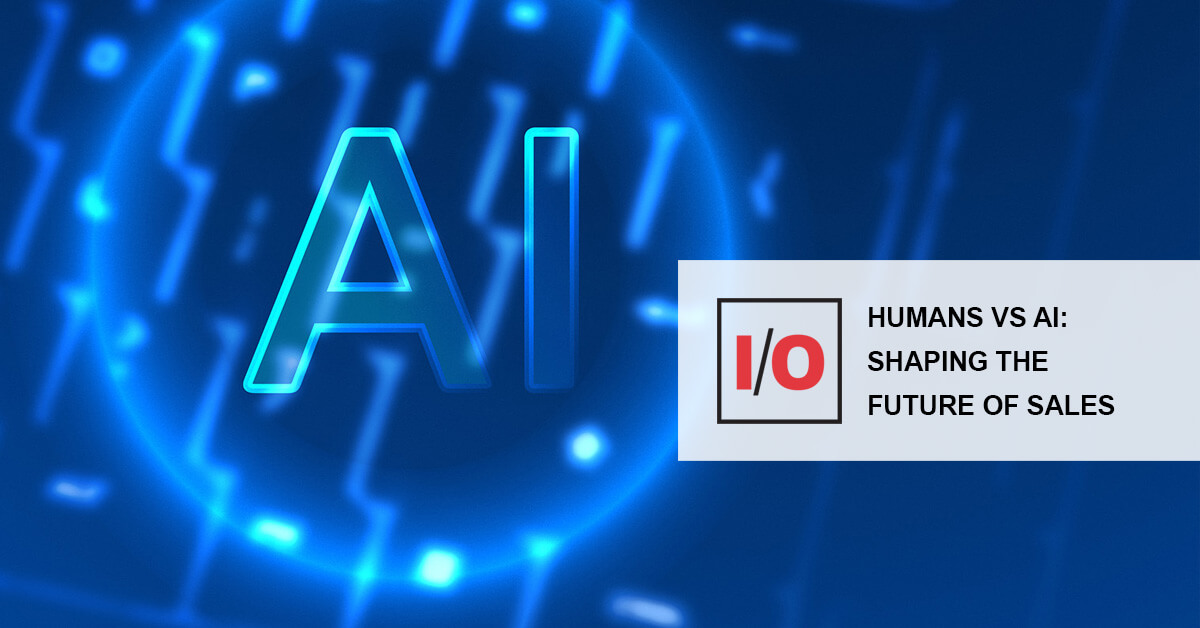
Humans vs AI: Shaping the Future of Sales
February 10, 2025
Insights from Jon Chatburn, Seasoned Sales Advisor & Founder of Growth Guide
As AI continues to expand its capabilities in customer-facing roles—spanning marketing, sales, customer success, and support—is it only a matter of time before machines fully replace humans?
We sat down with Jon Chatburn, a seasoned sales leader with Growth Guide, who shared his observations and insights drawn from two decades of leading customer-facing teams. Jon joined as a speaker and panelist at a recent Wesley Clover hosted TechTuesday event on February 4, 2025. TechTuesday is an event series committed to advancing the overall well-being and growth of the local Kanata North and Ottawa business community.
Jon, let’s talk “Humans vs. AI”. What trends are you noticing in organizations, particularly within sales teams today?
AI is rapidly transforming sales, with companies racing to integrate it into their processes. Like any disruptive technology, its adoption comes with both opportunities and pitfalls. While AI offers efficiency and innovation, many businesses struggle to use it effectively, leading to missteps.
A key concern is whether AI will replace the human element in sales—a question that arises with every major technological shift. Having worked with various companies and led sales teams, I’ve seen both the benefits and the risks. The impact of AI extends beyond sales, influencing broader societal dynamics that we should also consider.
Where are you seeing AI deliver the most value?
AI delivers immense value in helping individuals make sense of complex information. Large Language Models like ChatGPT, Gemini, and Copilot excel at summarizing dense documents or conversations, refining emailing and calling scripts, or providing instant feedback on tactics and sales strategy ideas. They accelerate learning by allowing dynamic, hyper-contextualized conversational interaction, making information gathering and processing faster and more efficient.
AI can also be leveraged in knowledge bases for sales and tech support, and user adoption and training. Stakeholders can query AI agents as if speaking to a human, receiving highly relevant, contextualized information or suggestions in real time. This ability to quickly retrieve and refine information is one of AI’s most impactful applications in sales and support.
In your opinion, what’s working well for teams in terms of empowerment and efficiency?
AI is streamlining sales processes, from lead generation and engagement to adoption, renewals, and customer success. At the top of the funnel, where outreach and engagement require massive effort, AI plays a crucial role—writing scripts, analyzing engagement patterns, and predicting next best actions. This significantly reduces the sales reps’ experience requirements, increases their utility while accelerating their learning and efficiency.
AI can also enhance sales engagement and opportunity progression by automating follow-up activities, and suggesting contextualized resources like case studies or ROI tools. However, there’s a trade-off—automating too much can limit direct human interaction, deep learning and professional development. When AI handles key tasks, sales professionals may lose context, turning their role into button-pushing rather than skill-building. Balancing AI automation with hands-on learning is essential to maintain skills and expertise growth.
You mention the risk of sales professionals losing context. Can you elaborate?
Certainly. In my opinion, AI’s growing role in sales processes raises concerns about how the reduction in direct human interaction will affect customer trust and employee job satisfaction. When AI handles the bulk of the work, sales professionals spend more time clicking buttons and analyzing data and less time engaging directly with customers. In some cases, AI-driven avatars or agents will replace human interaction entirely, leaving sales reps disconnected from the real-world communication that fosters learning, socialization, and professional satisfaction.
This detachment and isolation can lead to increased anxiety, loneliness and other mental health challenges, similar to what we observed during the height of the pandemic. Finding the balance between automation and genuine human engagement is critical.
Where do you see limitations when it comes to AI-driven sales processes?
As sales become more complex—especially with enterprise sales with large organizations and multiple stakeholders—the need for human interaction becomes irreplaceable. AI lacks the ability to navigate the nuances of individual motivations, empathy, and the unique value each stakeholder sees in a solution. In these cases, human connection is not just beneficial—it’s essential.
AI can enhance efficiency by providing speed and organization, but it shouldn’t replace the human touch in high-stakes sales. The real value lies in balancing AI’s capabilities with the relational and strategic skills that only humans can bring to the table. How AI will best supplement this process is still evolving, but maintaining human involvement ensures a more meaningful and effective sales experience.
Let’s talk about pitfalls.
Humans instinctively recognize when an interaction feels inauthentic, especially in sales, where trust and credibility are crucial for delivering value. So how do we ensure we build and maintain trust while incorporating AI-driven interactions and process enhancements?
Businesses will definitely need to strategically balance AI with human interactions, as maintaining the human touch at the right time or situation will strengthen and accelerate the sales relationship more effectively than AI alone.
What are your top recommendations for businesses looking to integrate AI into their sales processes while maintaining the human element?
Businesses are already integrating AI into sales, and many companies are testing Beta solutions to refine and improve their processes. The key is to evaluate new technologies thoughtfully—considering ROI, implementation time, and their impact on trust, credibility and well being of employees
Adopt a flexible mindset: test, refine, and be willing to adjust. AI is especially valuable at the top of the funnel, where filtering and delivering contextual information at scale is crucial. However, with many unknowns, it’s essential to stay open-minded and intentional, ensuring AI enhances engagement and relationships rather than undermining them.
To wrap up, Jon, any final thoughts?
As new technologies emerge, our goal shouldn’t be to resist them outright, but to embrace them with cautious optimism and common sense, ensuring they’re used effectively for the right reasons.
For the first time, we’re encountering advancements that could profoundly reshape human interaction—in ways we don’t yet fully grasp. It’s crucial to navigate this shift thoughtfully to avoid a future where technology isolates us rather than enhances our connections.
About Jon Chatburn:
Jon is a sales executive with over 20 years of experience in biotech, medtech, and healthcare markets. As founder of Growth Guide, he advises early and mid-stage startups on go-to-market sales strategies, business development, and building customer facing teams.
Previously, he was VP of Sales at Shoebox Ltd, driving its growth and acquisition by WS Audiology in 2022. And prior to this, was the Director of Sales at DNA Genotek Inc., where he led the sales teams and channel partners across North America, UK and Europe.
He holds a BSc in Honors Biology from Bishop’s University and an MSc in Zoology from the University of British Columbia.
Wesley Clover invests in a range of technology companies, and they bring impressive innovation to markets and clients around the globe. I/O is our way of sharing some of the best insights. I trust you will enjoy them.
Terry Matthews, Chairman
